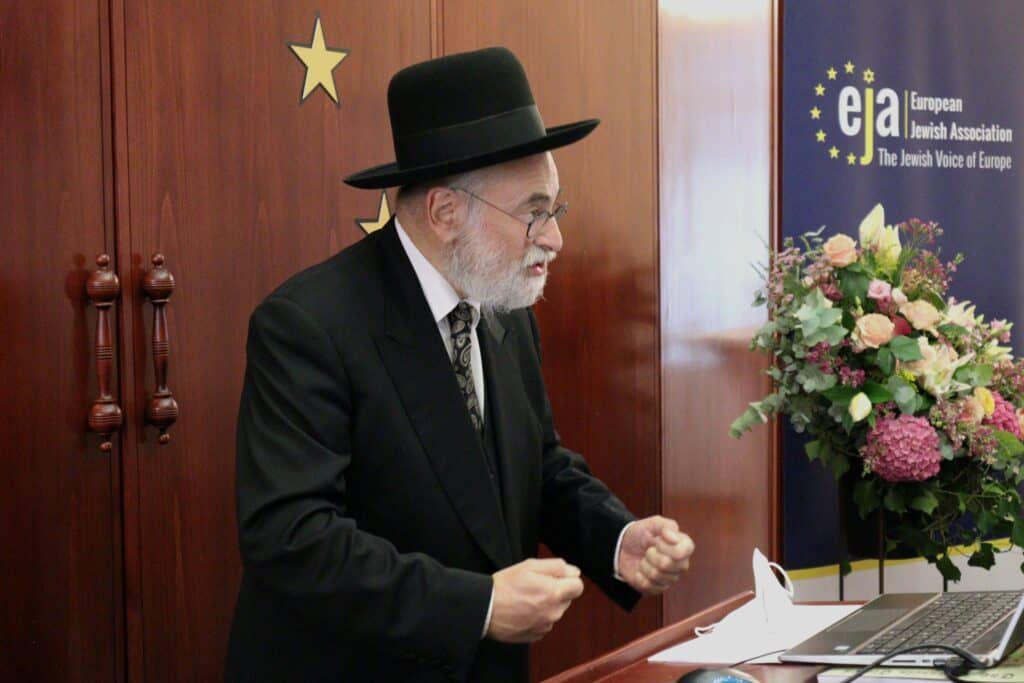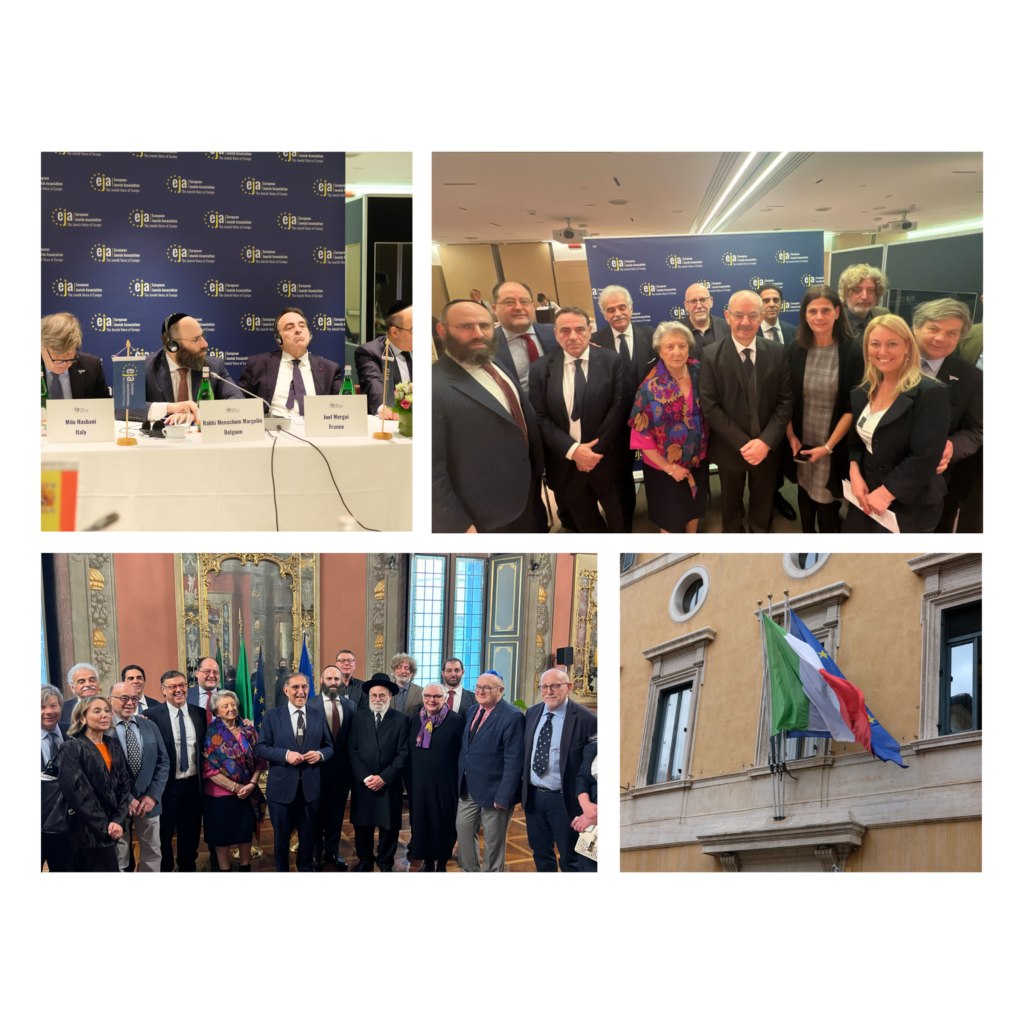Jewish leaders from across Europe called on Monday on Jewish organizations to reject “intersectionality” due to Zionist exclusion which creates a lack of solidarity with Jews. They also called on Israeli politicians to rise above differences, and urged legislation that bars from office EU politicians with avowed antisemitic positions.
These claims were voiced at the European Jewish Association (EJA) Annual Conference in Porto, Portugal yesterday.
Titled “Shaping the Future of European Jewry Together,” the conference was held in partnership with the Jewish Community of Porto and the EMIH Jewish community of Hungary headed by Rabbi Shlomo Koves. Over 100 presidents and board members of Jewish communities across Europe attended, along with government and regional special envoys for Combating Antisemitism.
The two-day conference included panel discussions on national plans for combating antisemitism, online hate, a new youth leaders program for campus activity and youth experiences of hate, ending Nazi memorabilia trade, bringing forward a women’s leadership forum and more. EJA is a Jewish-European NGO, and is one of several umbrella Jewish organizations. It was founded in 1989 and is headquartered in Brussels.
The conference culminated in a resolution passed by vote in a show of hands that will be forwarded to governments across Europe and to the Leadership of the European Union institutions, stating that antisemitism is unique and must be separated in national plans from other forms of hate.
The resolution also calls on Jewish organizations to reject “intersectionality” due to Zionist exclusion and a lack of solidarity with Jews, as well as on Israeli politicians to rise above their differences in the current tense political climate. It also urged governments to push for legislation barring from office EU politicians with avowed antisemitic positions.
Notable figures addressing the conference included European Commission Vice-President Margaritis Schinas, The General Secretary of the French Inter-ministerial delegation for the fight against racism and antisemitism Mrs. Elise Fajgeles, the Personal Representative of Chairman in Office on Combating antisemitism OSCE Rabbi Andrew Baker, Chair of the Woman’s Impact Forum at the World Jewish Congress Ruth Wasserman Lande, World Zionist Organisation Head of Department for combating antisemitism Raheli Baratz-Rix and the CEO of NGO Monitor Prof. Gerald Steinberg.















